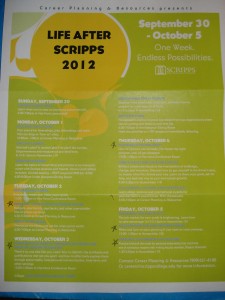I am the child of two teachers, and as such have lived my whole life on an academic calendar – summer vacations were always a couple months long, and the knowledge that that wasn’t true for everyone didn’t really hit me until sometime in high school. Office jobs never seemed that appealing to me, although I’m slowly realizing that my aversion is more to the perceived culture of office jobs than the actual work. And so when asked to pick a fictional character whose job I would love to have, the first thing that popped into my head was probably the farthest you can get from office work – I wanted to be Rupert Giles, from Buffy the Vampire Slayer. 
Now, part of this was because Giles is initially introduced as a librarian – a career path I am already considering and doing research on. But Giles isn’t really just a librarian- he’s Buffy’s Watcher, and he is there to help her with all of her Slayer duties. Giles is smart – he knows a whole lot about the kinds of monsters and demons that Buffy goes up against, and what he doesn’t know by heart, he’s quite good at sifting through big old books to find. And he’s also Buffy’s trainer for the physical stuff. He’s the one who helps her learn how to fight, whether it be shooting a crossbow, waving an axe, or just knocking out her opponents with her bare hands. Later on in the show he runs a magic shop instead of working as the school librarian, but he still maintains that librarian air – which might have more to do with his British accent and tweed jackets than anything else.
But then I started thinking – obviously I can’t actually be Giles. I am not a British man brought up from a young age to be able to train “the Slayer”. But there is the librarian aspect, and I do like that. And what aspects of Giles’ job – as a Watcher, or as a librarian or small business owner – is it that I find so appealing? Giles is helping fight evil, okay that’s one thing. Obviously the evil he is fighting is much more straightforward and I doubt when a vampire or horned demon is running at you you’re really thinking about stopping global warming, but he is trying to do good in the world. Check. Giles also doesn’t work alone – obviously there’s Buffy, who he is kind of like a father figure for, but there’s also the rest of the self-proclaimed “scooby gang”: Willow, Xander, and various other characters, human or otherwise, depending on the season. Giles is doing this work with a team, and that’s also something I appreciate. Another check. Lastly, he is knowledgable about what they’re fighting, even though he doesn’t know everything. Having knowledge and being able to use it to do good for the world, with a team effort. It’s that combination of things that I find most appealing about Giles’ role in Buffy. And now I understand a little bit better just why I want to be Rupert Giles when I grow up.



